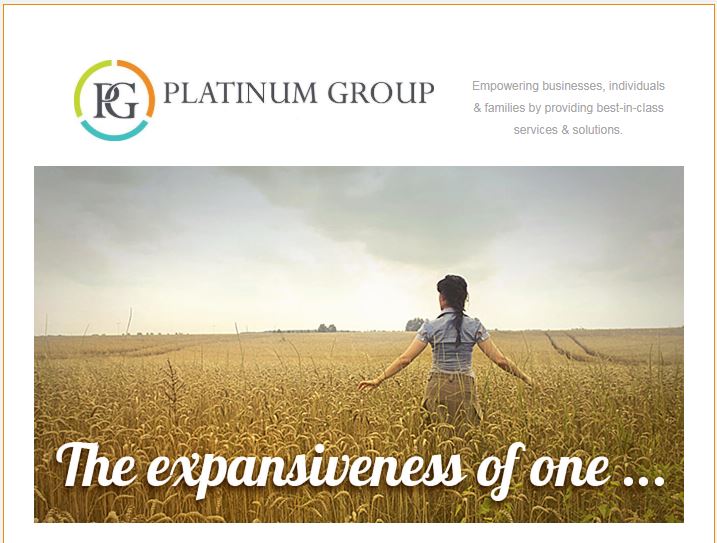Trust is the bedrock of any successful, productive workplace. When employees trust their HR team and the organization’s leadership, it significantly enhances their performance, happiness, and tenure within the company. Trust has a powerful impact on employee engagement, motivation, and productivity. When employees have confidence in their HR and leadership, they feel secure taking risks, sharing their vulnerabilities, and going above and beyond—knowing their efforts will be recognized and rewarded. Therefore, building trust is an absolute must if your organization wants to successfully create a positive and productive work environment.
Identifying Trust-Eroding Factors
HR leaders must recognize the key factors that can create a lack of trust between HR and the employee population. Understanding these pitfalls is the first step in rebuilding trust.
Lack of Autonomy and Involvement in Decision-Making: Employees want to feel that their voices are heard and that they have a say in decisions that affect them. When HR and leadership make unilateral decisions without involving or informing employees, it can create resentment and mistrust. Employees may feel that their needs and perspectives are being ignored.
Inability to Provide Feedback to the Organization: If employees do not have accessible channels to provide feedback, suggestions, and complaints, they will feel that the organization does not value their input. This undermines trust, as employees do not believe their concerns will be addressed.
Micromanaging and a Lack of Listening: Micromanaging and a failure to listen to employees are two of the biggest trust killers. When managers constantly look over employees’ shoulders and discount their ideas, it signals a lack of faith in their abilities. Employees feel that they are not trusted to do their jobs. When HR and leadership do not actively listen to employee concerns, it gives the impression that they are not genuinely concerned about their employees.
Understanding and addressing these trust-eroding factors is important for HR leaders who want to build a positive, productive work environment. By taking proactive steps to empower employees, facilitate open communication, and demonstrate genuine care, HR can begin to rebuild the trust that is so vital to organizational success.
How to Build Trust
Building trust between HR and the workforce requires a multi-pronged, intentional approach. Leaders must back up their stated commitment to transparency and open dialogue with consistent, trustworthy actions.
The groundwork of this process lies in establishing meaningful personal connections. When employees feel that HR leaders genuinely care about them as individuals, not just cogs in the machine, it cultivates a relationship built on mutual respect and confidence.
Key trust-building strategies include:
Personal Connections: Invest time getting to know employees as unique individuals. Engage in casual conversations, attend company events, and strive to understand their distinct needs and concerns.
Transparency in Communication: Openly share information about company policies, procedures, and strategic decisions, even when the news may be difficult to discuss.
Empowerment and Autonomy: Grant employees a real voice in decisions impacting their work and provide the autonomy to approach tasks their way.
Psychological Safety: Foster an environment where people feel safe taking thoughtful risks, expressing diverse views, and collaborating freely.
Responsive Feedback Loops: Actively listen to employee feedback, ideas, and concerns, and take concrete actions to address their input.
Investment in Development: Provide growth and advancement opportunities to demonstrate the organization’s commitment to employees’ long-term success.
Accessibility and Timeliness: Make sure that HR is readily available to respond to employee questions and issues quickly, avoiding delays that can destroy confidence.
Compensation Transparency: Consider pay transparency measures to address any perceptions of unfairness.
Continuous Improvement: Regularly solicit feedback and visibly act on it through meaningful changes.
Informal Interactions: Set aside time for casual, unstructured interactions where employees can share their unfiltered ideas and concerns.
By implementing these trust-building elements, leaders can establish a work environment defined by mutual respect, open communication, and a shared sense of purpose.
Tools to Help Build Trust Between HR and Employees
Various tools and platforms can assist HR leaders in building trust with their workforce, including:
isolved Engage
How can retention, communication, and sentiment all be improved with your employees? By staying connected. isolved’s Engage solution, Share & Perform, positions leaders to provide the recognition, direction, and feedback employees need so they feel supported and understood.
With Share & Perform, it’s easy to:
- Simplify and automate daily HR and payroll processes, reducing manual tasks and improving efficiency.
- Crowdsource ideas from employees, evaluate them, and implement the best suggestions quickly, fostering innovation within the organization.
- Foster a culture of continuous improvement by providing real-time feedback and recognition, boosting employee engagement and productivity.
- Break down silos and promote collaboration across teams, enabling seamless communication and knowledge sharing.
- Conduct 360-degree performance reviews, gathering feedback from peers, managers, and other stakeholders to gain a better understanding of employee performance.

Voice of the Workforce Study
Another valuable resource is isolved’s Voice of the Workforce study. This in-depth survey of over 1,100 employees provides rich insights into the factors that drive trust, engagement, and satisfaction in the workplace.
The study covers a wide range of topics, including how:
- Empowering employees with autonomy and involvement in decision-making is a powerful trust-building strategy that signals that the organization respects their expertise and perspectives.
- Providing a frictionless, user-friendly benefits experience helps build trust by showing the company prioritizes the overall well-being of its workforce.
- Fostering a positive, collaborative work culture where employees feel psychologically safe and supported is crucial for cultivating an environment of trust.
- Supporting employee development and growth opportunities communicates that the organization values its people and is invested in their long-term success.
By reviewing the findings of this study, HR leaders can gain a better understanding of the specific trust-building needs and expectations of their organization. This can inform strategic initiatives to improve the employee experience and cultivate a culture of trust.
Transitioning to Modern HR Technology
Going beyond today’s specialized tools, simply modernizing a company’s HR technology can go a long way in building trust. Outdated, inefficient systems that create friction and frustration for employees undermine trust in the HR function.
By transitioning to a cutting-edge, all-in-one HR platform, organizations can streamline HR operations and demonstrate a commitment to employee well-being. Features like mobile self-service, automated workflows, and seamless integrations show employees that HR is invested in making their lives easier and more efficient.
Modern HR technology aligns with industry best practices, ensuring that employees receive the level of support and responsiveness they expect. This, in turn, fosters trust in the HR team’s capabilities and dedication.
Employee Self-Evaluation
Employee self-evaluation is a powerful tool that can significantly build trust in the workplace. Here are some tools that can help in this process:
Self-Evaluation Forms: Provide employees with structured self-evaluation forms that guide them through assessing their performance against predefined criteria. These forms can include questions about goal achievement, skills development, and contributions to team success.
Online Assessment Platforms: Utilize online assessment platforms that allow employees to complete self-evaluations in a user-friendly and confidential manner. These platforms often provide customizable templates and automated reporting.
Goal-Setting Software: Implement goal-setting software that enables employees to set and track their own performance goals. This promotes ownership and accountability, as employees can regularly review their progress and make necessary adjustments.
Feedback Tools: Integrate feedback tools that facilitate both self-feedback and feedback from peers and supervisors. These tools can include features such as anonymous feedback and real-time feedback.
Training and Development Resources: Offer employees access to training and development resources, such as online courses, workshops, or mentorship programs. Encouraging employees to take ownership of their professional growth can boost their confidence and motivation.
By putting these tools to the test, organizations can empower employees to actively participate in their performance evaluation, ultimately driving organizational success and strengthening trust between employees and management.
The Benefits of a Trusting Workplace Environment
When HR successfully builds trust with employees, the entire organization reaps the rewards. A workplace environment characterized by mutual respect and confidence enables higher performance, greater employee satisfaction, and a stronger, more cohesive company culture.
Empowered, Engaged Employees
In a trusting work environment, employees feel empowered to take ownership of their roles, contribute ideas, and go the extra mile. They are more willing to be vulnerable, experiment, and challenge the status quo, which fuels innovation and excellence.
Improved Retention and Loyalty
Employees who trust their HR department and leadership are more likely to remain with the organization long-term. They feel valued, supported, and invested in the company’s success. This reduced turnover saves the organization time and resources while preserving critical institutional knowledge.
Enhanced Collaboration and Teamwork
Trust also facilitates stronger collaboration and teamwork. When employees have faith in one another and the leadership team, they are more willing to cooperate, communicate openly, and work toward common goals. This level of togetherness boosts the organization’s overall performance and resilience.
In the end, trust is the glue that holds the employee-employer relationship together. By prioritizing transparency, empowerment, and open communication, HR leaders can develop a work environment where everyone feels heard, respected, and supported. This ultimately unlocks a wealth of benefits for the entire organization.
Today is your time to discover how an all-in-one HCM platform like isolved, offered by Platinum Group, can give you the tools you need to set your organization up for long-term success.
ABOUT PLATINUM GROUP
Platinum Group is a human capital management resource with solutions to help you streamline operations so you’ll have time to manage your business. No matter which division you work with: Payroll/HR or Accounting, our team is built upon a foundation of support, service, camaraderie and collaboration that we share both in-house and with our wonderful clients. For more information about Platinum Group, or to schedule a demo of isolved, please visit our website.























